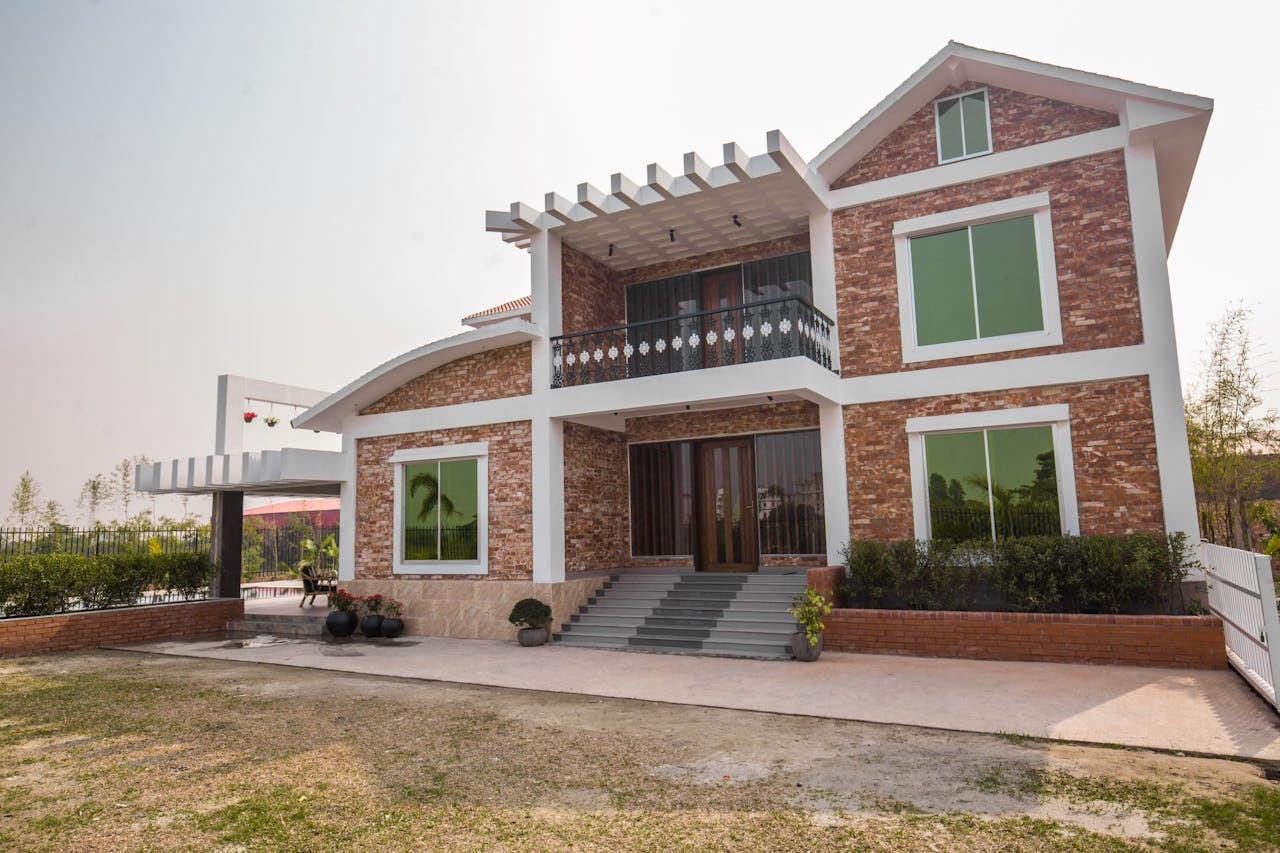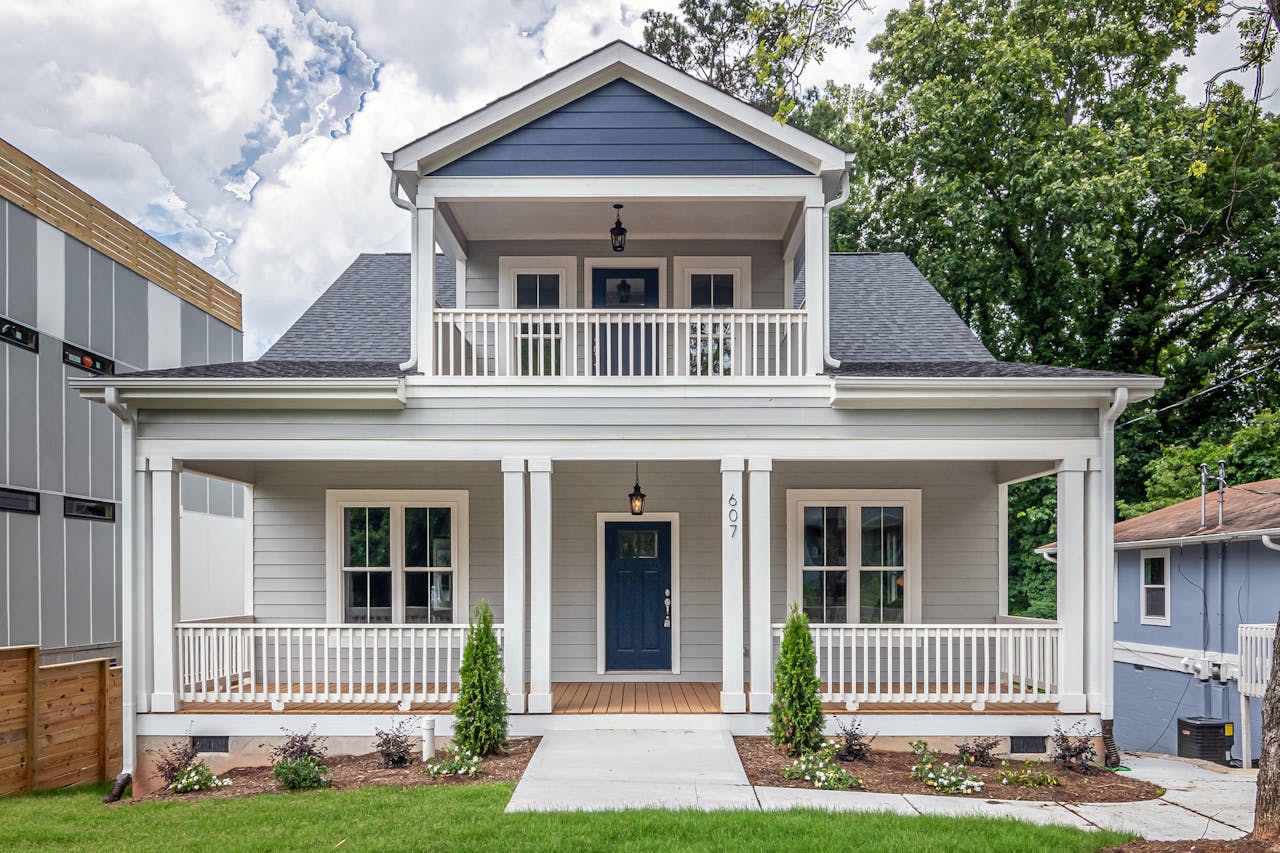Managing vacant properties is crucial for protecting your investment and ensuring the property stays in good condition. Without proper care, vacant properties can quickly fall into disrepair and become targets for vandalism, theft, and other issues. Effective vacant property management helps you avoid these risks and keeps your property in top shape. Whether it’s a residential home or a commercial building, having a plan in place for maintaining and securing your vacant property is essential.
Common Risks Associated with Vacant Properties
Vacant properties face several unique risks. Vandalism and break-ins are common problems, as empty buildings can attract unwanted attention. Squatters may also take up residence in vacant properties, leading to potential legal and safety issues. Additionally, vacant properties are more susceptible to damage from weather, plumbing leaks, or electrical issues, which can go unnoticed and worsen over time. By understanding these risks, you can take proactive steps to protect your property and minimize potential damage.
Vacant Property Management Basics
Key Elements of Vacant Property Management
Effective vacant property management involves several key elements. Security is a top priority to prevent unauthorized access and protect the property from vandalism or theft. Regular maintenance is also crucial to keep the property in good condition and address any issues before they become major problems. Financial management is another important aspect, ensuring that bills are paid, and the property remains insured. Compliance with local regulations and ordinances is essential to avoid fines and legal issues. By focusing on these elements, you can ensure your vacant property is well-managed and secure.
Overview of Vacant Property Management Services
Vacant property management services offer a range of solutions to help you keep your property secure and well-maintained. These services can include security monitoring, routine maintenance, landscaping, and administrative tasks like managing utility bills and ensuring compliance with local laws. Professional services provide peace of mind by taking care of all aspects of property management, allowing you to focus on other responsibilities. Whether you need regular inspections, emergency repairs, or comprehensive management, these services can be tailored to meet your specific needs.
Security Measures for Vacant Properties
Installing Security Systems
A robust security system is vital for protecting vacant properties. This can include alarm systems, security cameras, and motion detectors. These systems act as deterrents to potential intruders and provide real-time monitoring and alerts. Ensure that security systems are regularly tested and maintained to ensure they are functioning correctly. Additionally, consider using smart technology, such as remote monitoring, to keep an eye on your property from anywhere. These measures help create a strong security presence and reduce the risk of unauthorized access.
Regular Property Inspections
Regular property inspections are crucial for identifying any issues early. Inspections should be conducted both inside and outside the property to check for signs of vandalism, break-ins, or damage. Schedule inspections at different times to ensure comprehensive coverage and to deter potential intruders who might be monitoring the property. Inspections also help you stay on top of maintenance needs and ensure the property remains in good condition. By addressing problems promptly, you can prevent minor issues from becoming major repairs.
Securing Entry Points
Securing all entry points, including doors, windows, and gates, is essential. Reinforce locks, install deadbolts, and consider using security bars or shutters for additional protection. Ensure that all entry points are regularly checked for signs of tampering and are repaired promptly if any issues are found. Simple measures like installing motion-sensor lights around entry points can also deter potential intruders. Keeping entry points secure is a fundamental step in protecting your vacant property from unauthorized access.
Maintaining Vacant Properties
Landscaping and Exterior Care
Maintaining the exterior of your vacant property is just as important as taking care of the inside. Regular landscaping helps keep the property looking neat and cared for, which can deter potential intruders. This includes mowing the lawn, trimming bushes, and removing any debris. Also, check for any damage to fences, walkways, or other exterior structures and repair them promptly. A well-maintained exterior not only improves curb appeal but also signals that the property is monitored and maintained, which can help keep it safe.
Pest Control
Pest control is an essential aspect of maintaining vacant properties. Without regular occupancy, pests like rodents, insects, and birds can easily invade and cause damage. Regular inspections for signs of pests and taking preventive measures can help avoid infestations. This includes sealing any gaps or holes where pests might enter, keeping the property clean and free of food waste, and using pest control treatments as needed. If you notice any signs of infestation, it’s best to call in professional pest control services to handle the problem promptly and effectively.
Financial Management for Vacant Properties
Managing Utility Bills
Even if your property is vacant, managing utility bills is still necessary. Ensure that utilities like electricity, water, and gas are kept at minimal levels to prevent issues like frozen pipes or electrical problems. Set up automatic payments to avoid missed bills and potential service interruptions. It’s also a good idea to regularly review your utility usage and make adjustments as needed to save costs. For example, you might lower the thermostat in the winter or adjust the water heater settings to use less energy.
Insurance Considerations
Proper insurance coverage is critical for vacant properties. Standard homeowner’s insurance may not cover all the risks associated with a vacant property, so check with your provider to ensure you have the right coverage. Consider additional coverage options for vandalism, theft, and natural disasters. It’s also important to inform your insurance company that the property is vacant, as this can affect your policy and premiums. Adequate insurance coverage helps protect your investment and gives you peace of mind.
Budgeting for Maintenance and Security
Budgeting for ongoing maintenance and security is essential for vacant properties. Set aside funds to cover regular inspections, repairs, and security system costs. Planning for these expenses helps ensure you can address issues promptly without financial strain. It’s also wise to create an emergency fund for unexpected repairs or security needs. Regularly review and adjust your budget to account for any changes in maintenance costs or security requirements.
Vacant Home Property Management
Differences Between Managing Homes and Larger Properties
Managing vacant homes differs from managing larger properties or commercial buildings. Homes typically require more personalized attention and frequent checks. Residential properties often face different security and maintenance challenges compared to commercial properties. For example, vacant homes in residential neighborhoods may attract more attention and require more frequent upkeep to maintain their appearance and prevent issues.
Specific Challenges with Vacant Homes
Vacant homes can face challenges such as neighborhood scrutiny, homeowner association rules, and more frequent maintenance needs. Ensuring the home appears occupied, such as setting timers for lights, can help deter intruders. Additionally, vacant homes in residential neighborhoods may attract more attention if not properly maintained. It’s important to stay on top of yard work, mail collection, and other visible signs of occupancy to keep the property looking lived-in and well cared for.
Best Practices for Vacant Home Management
Implementing best practices for vacant home management includes regular inspections, maintaining the exterior, and ensuring the home appears lived-in. Using professional management services can help address these tasks efficiently. Ensure all maintenance and security measures are documented and regularly reviewed. For instance, schedule monthly inspections to check for any signs of damage or neglect and adjust security measures as needed to keep the property safe and secure.
What to Look for in a Service Provider?
When selecting a vacant property management service, experience and comprehensive offerings are key. Look for providers with a solid track record in managing similar properties. Check reviews and ask for references to get a sense of their reliability and quality of service. They should offer a range of services, including security, maintenance, and administrative tasks, tailored to your property’s specific needs. Transparency in pricing and clear communication are also important to ensure you know what to expect.
When interviewing potential property management providers, ask about their experience with similar properties and their specific services. Inquire about their inspection schedules, maintenance procedures, and how they handle emergencies. Ask for examples of how they’ve managed issues in the past and their approach to keeping properties secure. Clarifying these details helps you choose a provider that fits your needs and ensures your property is in good hands.
Vacant Property Solutions
Technological Solutions for Monitoring
Technology offers various solutions for monitoring vacant properties. Security cameras, smart locks, and remote monitoring systems provide real-time updates and alerts. These tools help you keep an eye on your property from anywhere, ensuring quick responses to any issues. Consider installing motion sensors and automated lighting systems to deter potential intruders and create the appearance of occupancy.
Community-Based Solutions
Engaging with the local community can enhance the security of vacant properties. Neighbors can help monitor the property and report any suspicious activity. Joining a community watch program or maintaining regular communication with local authorities can provide additional layers of security. Building relationships with neighbors and local officials helps create a supportive network that can keep your property safer.
Temporary Leasing Options
Consider temporary leasing options, such as short-term rentals or allowing trusted individuals to stay in the property. This can help keep the property occupied, reducing the risk of vandalism and maintaining its condition. Temporary leasing can also generate some income to offset maintenance and security costs. Ensure that any temporary tenants understand and agree to your maintenance and security expectations to keep the property in good shape.
Keeping vacant properties secure and well-maintained is essential for protecting your investment. By implementing best practices and using professional services, you can minimize risks and maintain the property’s value.



